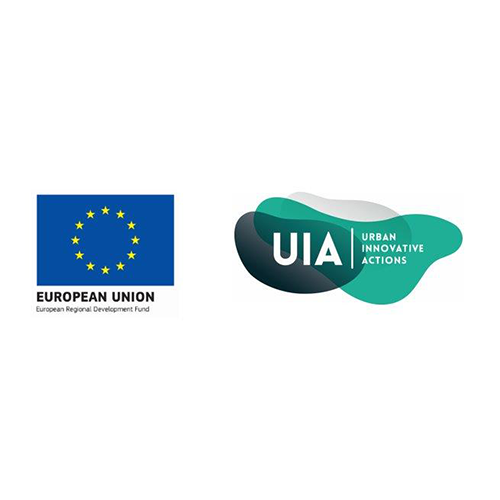APPLAUSE – from harmful to useful with citizens' led activities
The project addresses unsolved questions with regard to invasive alien plant species in terms of the zero‑waste approach and circular economy.
At present we are composting or incinerating these plants, and with the pilot project for processing plants into paper at a semi‑industrial level we have proven that they can be utilised for other useful purposes.
The proposed system of managing invasive foreign plants is based on education and cooperation with the citizens of Ljubljana and three principles of operation:
- »Do it yourself«,
- »Process with us« and
- »Bring to the collection centre
We want to make it easier for the citizens of Ljubljana to recognise invasive non-native plant species on their own and then remove and process them into useful products (1). If they do not want to do that by themselves they will be able to go to the newly planned re-use centre where we can process them together in workshops (2) or they can simply bring them to the new collection centre where project partners can process them in to useful products and then sell them (3). The project addresses the widest possible circle of stakeholders: kindergartens, schools, pupils, students, households, property owners, companies, tourists, professional organisations…on centre«.
As part of the project, we will study the potential for processing of the following plant species
- Amur honeysuckle (Lonicera maackii)
- Black locust (Robinia pseudoacacia)
- Bohemian knotweed (Fallopia x bohemica)
- Boxelder maple (Acer negundo)
- Canadian goldenrod (Solidago canadensis)
- Cherry laurel (Prunus laurocerasus)
- Cherry plum (Prunus cerasifera)
- Cutleaf coneflower (Rudbeckia laciniata)
- Davids' butterfly bush (Buddleja davidii)
- False indigobush (Amorpha fruticosa)
- Giant goldenrod (Solidago gigantea)
- Himalayan balsam (Impatiens glandulifera)
- Honey locust (Gleditsia triacanthos)
- Horse chestnut (Aesculus hippocastanum)
- Japanese knotweed (Fallopia japonica)
- Japanese meadowsweet (Spiraea japonica)
- Oregon grape (Mahonia aquifolium)
- Red osier dogwood (Cornus sericea)
- Rockspray cotoneaster (Cotoneaster horizontalis)
- Southern catalpa, Indian bean tree (Catalpa bignonioides)
- Staghorn sumac (Rhus typhina)
- Stinking fleabane (Dittrichia graveolens)
- Thunbergs' barberry (Berberis thunbergii)
- Topinambur, Jerusalem artichoke (Helianthus tuberosus)
- Tree of heaven (Ailanthus altissima)
Project partners
- VOKA SNAGA, water and waste management public company
- University of Ljubljana, Biotechnical Faculty. Department of Biology
- University of Ljubljana, Biotechnical Faculty. Department of Agronomy
- University of Ljubljana, Biotechnical Faculty. Department of Wood Science and Technology
- University of Ljubljana, Biotechnical Faculty. Department of Forestry
- University of Ljubljana, Faculty of Chemistry and Chemical Technology
- University of Ljubljana, Faculty of Natural Sciences and Engineering, Department of Textiles, Graphic arts and Design,
- Jozef Stefan Institute
- National Institute of Chemistry
- Pulp and Paper Institute
- TISA, Company for arboriculture and forestry
- GDi d.o.o. Ljubljana
- TRAJNA, association for the development of sustainable design
- Institute and letterpress studio tipoRenesansa
- Slovenian Centre of Excellence for Space Sciences and Technologies Space-SI







